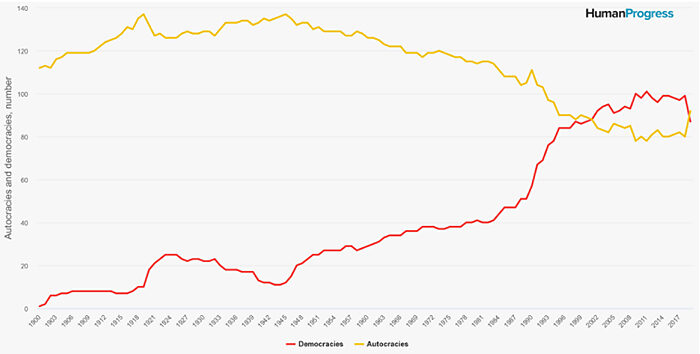While concerns about civil unrest are worth taking seriously, and any purported election anomalies should be fully investigated, we should also take heart in the fact that peaceful transitions of power—once rare—have become more frequent in much of the world. Still, peaceful power handovers are far from the “default.” According to an analysis by The Economist, in the past hundred years, only about half of the world’s countries have managed even a single power-transfer free of coups, civil wars, or constitutional crises. The good news is that once a country does manage to secure a peaceful change of government, the practice tends to become entrenched over time and creates positive momentum for continued peaceful power-transitions.
Consider a long-run historical perspective. Throughout most of humanity’s existence, authority typically changed hands through force. Kings often assassinated their predecessors, even killing close family members of the deposed monarchs, or defeated the prior ruler in battle. Consider ancient Rome during what has come to be known as the Crisis of the Third Century, a period of turmoil and particularly fraught political transitions. Take a moment to think of the fates of the fourteen emperors between Maximinus (ruled 235–238 CE) and Aurelian (ruled 270–275 CE).

